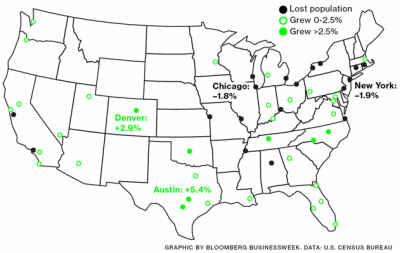
Recently, I had the honor of addressing a group of investors from Shenzhen, China, exploring opportunities in Texas and asking the question, why? Why here? Why Texas? Why Austin? Fostered by DB Business Group (a multi-sector global business development group), and a program called Invest Austin, a veteran of Silicon Valley like myself can’t help but ask, “Why not… Silicon Valley?” Okay, so an ardent advocate of Texas over the Valley certainly isn’t actually asking why they didn’t favor Silicon Valley, I know the answer to that question, but their interest in Austin, over the Valley, is intriguing none-the-less, no?
For all our exploration of the right team, timing, talent, validation, and capital in driving successful ventures and returns for investors, is location more important? In the immortal words of Peter Drucker, it certainly is, “culture trumps strategy.”
 So I took my talk down that direction, reflecting on the sage insight of philosopher George Satayana that those who cannot remember history are doomed to repeat it, and gave the very talk that most of us dreaded in school; that of ancient history.
So I took my talk down that direction, reflecting on the sage insight of philosopher George Satayana that those who cannot remember history are doomed to repeat it, and gave the very talk that most of us dreaded in school; that of ancient history.
Article Highlights
How Ancient Greece and Rome Defined Western Entrepreneurship
Consider briefly the two different cultures of ancient Greece and Rome. Both centers of art, economy, and innovation in their time. Both at the very heart of what defines today’s western civilization. And yet, both, very very different philosophically and in their approach to civilization.
To begin with, consider a few of the obvious characteristics of ancient Greece:
- The epitome of ancient, western, art and culture
- While perhaps not the “inventor” of philosophy, the Greeks are considered the tipping point in the adoption of philosophy
- They were governed by independent, yet united, city-states
- Their lives were truly destined by the Gods; their fates woven
- And innovation, which I’ll explore further, was a result of observation and need
Consider next, what most might conclude are defining characteristics of the Romans:
- The dominant force of western civilization
- Where the Greeks were defined by philosophy, the Romans are better known for stoicism – strength in the face of adversity (I’m simplifying it in case you’re not familiar with stoicism… I’ll get into this a bit more too)
- The civilization of Rome was governed by a single republic representative of the people, unified toward the ideal of the republic
- While they paid homage to the Gods (largely borrowed from the Greeks), they believed in Manifest Destiny more than worshiping the Gods to whom they were beholden. Like the United States reaching for the Pacific in the 1800s, it was their responsibility to bring Rome to everyone. The Gods play a role, but the Romans are in control; HOWEVER, they didn’t force Roman culture – in fact, those conquered, retained their own. Rome believed it was bettering civilizations, not meant to replace them.
- As a result, innovation was largely based on their conquest and the need for improvement to deal with and manage the scope of their reach
Defining characteristics with which one could certainly poke some holes in my writing of history but I think generally define those cultures. More importantly, help us today, understand how the individuals in those cultures thought and lived.
What of Philosophy vs. Stoicism
I like to think of philosophy, the study of general and fundamental problems such as knowledge and existence, as being at the heart of what defines a culture. It’s important to study the philosophies of an economy as philosophy, by way of defining culture, in turn, defines communities, which foster industries, which create economies. Therein is our interest.
To simplify our walk down the streets of ancient Greece, I want to share the stories of only 2 Greek philosophers: Thales and Cicero
Thales
As it would happen, Thales was known as the Philosopher Entrepreneur. In 500 BC, in Miletus, the Greeks longed for Philosophy to have practical application. Often seen walking the city, looking at the stars and observing the sky, because he was a mathematician with his head in the clouds, Thales would often fall into potholes. What good is this introspection?
Thales wanted to prove that his beloved philosophy can change the way people live; that philosophy is the way we choose to live our everyday life. A good meteorologist, he was able to forecast the weather. Taking advantage of this skill, he invested in olive presses at a low-cost, when olive presses were out of season, having forecasted excellent weather and an increase in olive production. When the need for olive presses rose… well, I don’t have to get into basic economics to explain how Thales, through observation, filled a product/market fit. A need.
 Cicero
Cicero
One of the most well known philosophers, I’m going to throw a curve ball at you and introduce to Cicero, a Roman. What on earth could a Roman do to reinforce my underlying point about the differences in cultures and how it was the Greeks and Philosophy, not the Romans and Stoicism, that apply here? Cicero was a student of Greek Philosophy and the man who introduced the schools of Greek Philosophy to Rome.
Cicero has left a legacy of dozens of incredible ideas embraced today, of which most don’t realize. One idea in particular struck me, that personal gain, made upon others’ failures, is an illusion. Consider the inverse of that: build only on success.
Let’s take a look at the heart of Rome and Stoicism
Fortitude as a means of overcoming destructive emotions
Stoicism is comprised of the main principles that define what it means to live one’s life as a stoic:
- Practice misfortune
- Train to avoid wrong
- Everything is ephemeral
Some time ago, I wrote of the subtle difference between mistakes and failures in entrepreneurship, from the standpoint of architecting growth. Simply put, that mistakes, the wrong, should be avoided but failure, must be embraced. Practice misfortune but train to avoid what is wrong. The greatest mistake most entrepreneurs make is to not learn from history, not research their market, not attract or hire the right team: to avoid mistakes. After all, everything is short-lived. Your idea, your advantage, your market, your business – all of it ephemeral, so strive for greatness at the cost of failing, but don’t make mistakes or you’ll never find success.
Stoicism, the defining characteristic of what it means to be Roman but with Philosophy at the heart of what fosters culture, community, industry, and economy, let’s look at our communities today from the standpoint of our philosophies (time to poke holes in what I’m thinking, from your point of view).
The 5 Characteristics and Philosophies of Silicon Valley
- Silicon Valley is the dominant force of innovation in the last 30+ years. While we can make arguments that other cities, other economies, have played their role, when we think of innovation, we think of technology and when we think of technology, we think of Silicon Valley.
- Fail, fail fast, fail frequently. In 2007, Josh Kopelman remarked with First Round Capital that entrepreneurs need to fail cheaper; in 2006, that as soon as one writes a business plan, it’s wrong. Fred Durham and Maheesh Jain, build a $100 million company on coffee cups and T-shirts. They had previously started 9 companies in 6 years before discovering Cafe Press. In the mid-90’s, Kamran Elahian, a Silicon Valley entrepreneur, famously engraved his Ferrari license plate with Momenta, the name of a company he founded in 1989. Momenta had gone bankrupt in 1992. Stoicism and the celebration of failure.
- Create value for all. This is a tough one to wrap one’s head around if you haven’t lived in the Valley. It’s easy to perceive, from the outside, that it’s cut-throat, with everyone scrambling to get rich, to dominate. Indeed, that’s what’s happening, just not the way most people on the outside see it – they’re scrambling to get everyone rich. Knowing that 9 out of 10 startups fail, they are less focused on your success in a venture, than in where you’re going from here, and how we can collectively create value.
- Constantly “better.” And I put that in quotes because I want you to think of it in terms of the action of bettering. Who are the “Gods” of Silicon Valley: Zuckerberg? Brin? Meyer? Gates (no, he’s not IN Silicon Valley… that’s my point). We have movies about these Gods so certainly we’re “worshiping” them as Gods aren’t we? But is our startup economy that has those icons or is it Hollywood that makes movies? In the Valley, no one is a God. No one is so idolized. Certainly, people are admired, greatly respected, and deservingly so, just as the Romans respected and honored their Gods, but the philosophy is that our responsibility is to look not at their success but their failures, and improve upon them. Google exists because of Yahoo’s Directory, the directory that arguably made our use of the internet common-place and trust-worthy, but failed to give us access to everything. MySpace was little more than the improvement on Friendster; both of which pre-dated Facebook, which now everyone is trying to “fix.” We admire the Gods but we don’t live by their success over us but rather our personal responsibility to exceed them.
- Innovation is a result of disruption and constant improvement. Conquest.
Silicon Valley then, like Rome, is the Republic, it’s not a place, it’s an idea. Indeed the average person on the street is asked where Microsoft or Groupon is headquartered, “Silicon Valley,” is frequently replied. Silicon Valley isn’t a place, it’s the name we apply to the stories of great heroes who failed and conquered, it’s word used to refer our economy of innovation, not a location.
Just as the Romans embraced every religion, every philosophy, as they conquered, allowing those conquered to retain much of their heritage, the idea of Silicon Valley recognizes that there is no single philosophy, there is no right way, no right answer. Being Lean, or Agile, or Bootstrap, MVP (whether minimal or maximum viable), or Brazen, aren’t philosophies held in such high regard that startups are lean, as though that’s right; they don’t care how one works, nor what you’re doing, as long as you are stoic, creating value for all, and constantly improving upon… Roman.
By contrast, what are the terms, the ideas, and the philosophies that you most frequently hear where you live? In my case, can we make a case about Austin?
- At the heart of Texas, it’s hard to deny that Austin, the live music capital of the world, the blue city in a red state, the state that defines independence and in which we fought to be Texan first and American second, is the beating heart of American culture. An epitome. At the very least, a major artery.
- Austin is the home of the bootstrapped entrepreneur and a shining example of the lean startup. One can’t go a day without a fresh entrepreneur starting the description of their business by saying, “We’re a lean startup,” as though that makes a difference in your success. Let me get off the rails here for a second as I’m sure many of my Austin brethren are now starting to wonder where I’m going with this… didn’t I just praise the Valley for it’s belief that the approach to your venture is irrelevant? Whatever works? I did, but that doesn’t mean that’s the best approach any more than you’ll hear me say others must be Lean.
- Thousands are moving to Austin, TX, more than anywhere else in the country, because of the ideal Austin has for life. Work / life balance. Entrepreneurs here generally won’t work 80 hour weeks. Parents are expected to leave the office to get home. Some look at that in the startup community as a badge of pride, “we won’t work like they do in Silicon Valley,” as though how much you work determines your success… and yet, it does determine your life. I still remark that the first question people ask you when they meet you in Silicon Valley is what you do for a living; here in Austin, that’s generally the last question they ask.
- How well do we know the stories of the failures of the greatest entrepreneurs in Texas? Do we discuss and celebrate the flame-out of hair-brained ideas or do we generally celebrate successes? In a sense, do we worship the Gods? Not necessarily because we truly worship them, again, there is a positive spin in my introspective, but does Texas not worship successes because of our need for access to, transparency to, capital? Is Capital not the manna of the Gods? Manna that’s prolific in the Valley but relatively inaccessible here? To some extent, are we not told that we must avoid failure because Angel’s need their return? I think we are. Entrepreneurs are told to find customers and revenue, to succeed, before they’ve really even validated that there is a significant opportunity, because the Gods, can’t afford to let us fail; our destiny in woven by their clay.
- Innovation then, is based on a product/market fit. Find something the market will buy, and do that. Sounds like Thales, no?
Austin sounds an awful lot like Greece and when you explore the idea further, and consider the independence of Dallas from Houston from Austin from San Antonio; or the tremendous rivalry between A&M and UT; or the stark distinctions between industries or markets (never before here in Austin have I been asked so much if I work in B2B or B2C – there is no difference!), is Texas not comprised of city-states? United yes, in Texas, but distinct. Not an idea, but a location. No? Why is your part of the world called Silicon Alley or Silicon Prairie or Silicon Hills as though it’s distinct and separate from that idea of constantly bettering our world and creating value for everyone. Because our independence matters. We’re all a part of Silicon Valley, Silicon Valley is just an idea and our attempts to brand ourselves as distinct is both telling of our worship of what happens in N. California and our desire to be distinct. We have to be “Silicon” but not…. we want to be like that, but we’re not. Not part of the greater idea, the Republic, but doing things “our way.”
Culture Eats Strategy For Breakfast
 I’ve never given this talk, to this point, without a lot of agreement, and disagreement. Assuredly you’re either with me 100% or poking holes all over the place, refuting either my retelling of history or my experience with the present. And that’s exactly my goal, that’s the point of thinking this way… there is no right answer, there is no right way. Save for, perhaps, that culture that constantly questions, endeavors, and strives to be better – is that not what creates incredible enterprises? Culture eats strategy for breakfast. What matters not is how one gets there, but why.
I’ve never given this talk, to this point, without a lot of agreement, and disagreement. Assuredly you’re either with me 100% or poking holes all over the place, refuting either my retelling of history or my experience with the present. And that’s exactly my goal, that’s the point of thinking this way… there is no right answer, there is no right way. Save for, perhaps, that culture that constantly questions, endeavors, and strives to be better – is that not what creates incredible enterprises? Culture eats strategy for breakfast. What matters not is how one gets there, but why.
Here’s the rub and where hopefully I make it clear, that for all my praise of Silicon Valley… well, here’s the point: Rome burned. Repeatedly. For all it’s dominance, influence, and control, at the end of the day, it didn’t work. And yet Rome learned from its history. Cicero was a student of Greek philosophy. The Roman Gods were nothing more than renamed Greek Gods. So should we detest Rome, should we detest N. California, for conquering and extinguishing Greece? Certainly not, Greece was a tremendous culture in it’s own right and the very definition of “culture.” We relish in not being Rome (God forbid we’re like Silicon Valley), we’re distinct!
And yet, Ancient Greece failed too. Heck, Greece is bankrupt today 🙂
Perhaps we need to learn not from their successes, but their failures?
Rome IS Burning
It starts with a slow burn. The decadence, the narcissism, the greed… hang on, you were thinking I was talking about Silicon Valley didn’t you? Shame. Rome people, Rome. People though, are fleeing Silicon Valley. I’m just one of them, but my departure had little to do with professional gain, I didn’t move for a job, I moved for better… there’s a slow burn.  The cost of doing business in California is exorbitant! The legal hurdles are becoming overwhelming. N. California is losing it’s monopoly on technology and talent as other parts of the world educate and mature. That’s not to say one isn’t still better off in N. California, for now, the embers are growing brighter.
The cost of doing business in California is exorbitant! The legal hurdles are becoming overwhelming. N. California is losing it’s monopoly on technology and talent as other parts of the world educate and mature. That’s not to say one isn’t still better off in N. California, for now, the embers are growing brighter.
Not convinced? Look at that map. Just last week, Businessweek reported the migration of and growth in American cities over the last few years. See that black dot on the far left side of the map? Look at what’s happening in Texas: Dallas up, Houston up, San Antonio up, and the greatest population growth in the entire country? Austin. Silicon Valley is shrinking and the world is migrating to Austin… it doesn’t do that because Austin is nice. People leave their home for places better: for potential and opportunity.
In 2011, Inc asked, “Is this the end of Silicon Valley?” In 2012, my distant relative, Chris O’Brien (all O’Briens are related), reported Steve Blank’s supposition that social is killing Silicon Valley.
“I think it’s pushing real innovation outside of our country,” Blank said. “And it might be the demise of what we actually do in Silicon Valley.”
And in light of recent activities in New York, and in particular Austin, one could argue that innovation in Social has already left the Valley.
It doesn’t end there… Derek Thompson reported in The Atlantic that, “The Golden Age of Silicon Valley Is Over, and We’re Dancing on its Grave,” while David Sack, after selling Yammer for $1.2B, foretold the end.
But that doesn’t mean Rome was a failure. It’s influence, it’s culture, it’s stoicism, define western civilization today. The question is, what can we learn from it.
Greece had no shortage of challenges either
When I think about those characteristics of ancient Greece, and when we translate them to our respective communities of today, I believe we should not embrace our strengths but identify the weaknesses and gaps.
- Does independence not foster ethnocentrism? Hell, the United States is known globally for it’s ethnocentrism. Is Texas a little too introspective? Is Austin a little too focused on Austin alone? In looking inward too much, do we overlook lessons already learned elsewhere? Do we attempt startups that have already been attempted, or are being attempted as we speak? I won’t hazard to conclude this question but I can say, given my history in Event startups, that never before have I been in an ecosystem where there are so many entrepreneurs doing the same kind of thing… something other parts of the world learned long ago won’t work.
- Does individualism create businesses, but not cohesive industry? I’ve written about this before, so I won’t belabor the point, but early stage ventures must work together to compete with one another. Wait, what? Innovations must foster industries before new ideas are embraced, and like it or not, it takes competitors, cooperation, and collaboration, between like businesses, to create those industries. How many people think of Austin as the home of the eCommerce industry? And yet it is. How many people recognize that where you live is indeed an industry and not just an economy? We know of S. California, the Rust Belt, Detroit, the Fashion District, and even yes, “Silicon Valley,” because of industry, not the individual businesses therein.
- Are we supportive but not truly collaborative? Here’s a tough pill to swallow that took me a long time to grasp because I didn’t see it this way, I had to hear it, time and again: people struggle to find co-founders. That was a foreign concept to me before arriving in Austin; in the Valley, people are collaborating all the time to start new ventures, one just has to ask. Here, we have meetups just to help people date in hopes of finding the love of their startup life. Without question, Austin is FAR, FAR, FAR, more supportive of your success, evident only in the number of entrepreneurs per capita, but that’s not the same as putting everything you have on the line to risk failure in collaborating with a partner.
- Does a celebration of success overlook the importance of failure? Notice how these challenges are building on one another yet? Because of independence we look within, we support but do we really collaborate, we do it ourselves and are Lean rather than investing (spending) to build… is that not because the celebration of success enables people to overlook the greater importance of failure?
- Does filling needs not stifle disruptive innovation? The age old debate about the product/market fit and being Lean: filling a need is not innovation, it’s building business. I’m not on a side of that debate but it’s intriguing, fitting a product into a market isn’t invention. How then, can that be the heart of the future of innovation?
It can, because Austin is not Greece.
Where in Ancient history Rome replaced Greece, in the history books of tomorrow, people will have fled “Rome” to “Greece.” And that’s exactly what’s happening today.
Learn from Rome and Greece
| As the United States migrates to Texas, it brings with it the philosophies, cultures, and experiences of all that makes our economy great. People bring with them their stoicism, their embrace of failure, their demand of greater, their belief in an idea more than location. And while that alone fails, when blended with the celebration of success, the importance of oneself and our lives, and an embrace of validation and the product/market fit, innovation is both disruptive and lean. That’s the future. That’s why Texas (Austin) recognizes that independence fosters entrepreneurship, individualism fosters creativity, and you can’t deny that our celebration of successes has built 4 of the largest economies in the United States in Dallas, Houston, San Antonio, and Austin. And at the center of that is Austin. If we continue to be Greece and favor our city-states, that independence and individualism alone… well look at what happened to ancient Greece. But that’s not the direction Texas is headed is it? Texas is in the unique, truly unique position, of learning from the startup communities of Greece and Rome. And that, is why China is in Texas. |






Paul, you make some intriguing points.
In particular, choosing between SV and Austin isn’t required; in fact, the argument is a waste of time. The choice may not be between “80 hours a week and cutthroat” versus “work smarter, not harder and collaboration.” Because of their vision and market situation, some startups require 80 hours a week, working smarter, collaboration, and just a taste of cutthroat applied at the right moment.
What seems to be drawing people who’ve migrated here recently is the widespread receptiveness and general support for innovators and their courage to start something new and risky. Unfortunately, the parts of SV that aren’t often seen here yet include the vision that favors platform over early profits, and the ability to recognize epic fails early and move on. It’s disappointing when you encounter an incubator where everyone has the same basic idea (“build cool mobile apps”) and no one has a vision that includes evolving into a platform that lifts many other companies around them.
Thanks for a thought-provoking piece (although I’ll admit that my brain hurts after reading this at 11pm!).
You’ve called out the great hypocrisy to which all but a few of us Austin business leaders and ecosystem shapers have fallen prey. We claim to be collaborative, but we lose sight outside of Austin. (I moved from L.A. to Austin to promote the great Austin hype for a living [worked as media director at Chamber of Commerce] and we rarely ever spoke of anything you just wrote about. You’re correct in that until we start to look outside of Austin (even just Central Texas would be a great start) we can’t succeed on the scale we could or claim to be capable of. The clean tech ecosystem in Central Texas vs. Austin is the first exception I see to the short sightedness. Once we started embracing Central Texas and other cities to collaborate, we started to make real impact. Thank you for writing about this, reminding us to look a little farther out — to stop drinking the Austin koolaid long enough to remind ourselves what happened in other ethnocentric cultures, large and small.
Paul,
Now to apply my vast knowledge of Rome as I am a scholar of the time period (well, I got my bachelor’s in History anyway).
The Roman Republic was not governed by a single representative but instead was governed by the Senate and, after the impact of the Gracchi brothers, the Tribunes of the Plebs to a lesser degree. Every year, voting was held for two consuls who would act as the executives of the government. They would take alternate months presiding over the State (so each had 6 months in power) and held the highest imperium within the Republic for that year. At the conclusion of their year they would then become pro-consuls and venture abroad to govern a province which really meant bleeding it dry for as much personal gain as possible and/or starting a war to expand Rome’s reach. Pro-praetors (second highest imperium with 6 elected annually, later increased to 12) would govern other provinces as well after their year of praetorship before returning to Rome to attempt to gain election to the consulship.
For the most part consuls only ever served once in the role, maybe twice if they were especially well regarded but they had to wait 5 years before running again due to Rome’s aversion to kings and absolute rulers. Gaius Marius broke this trend by becoming consul 6 times, followed by his protege Sulla who became dictator for life and decimated the ruling classes before enacting laws to prevent someone else from doing just what he did. And then Sulla was followed by Caesar who followed Sulla’s playbook, despite the laws, and you know how that turned out…
As for Cicero, he’s even more interesting because he was, for all intents and purposes, an outsider. Cicero was not a Roman of the Romans but came from a town called Arpinum. The establishment and the elites never really accepted him as one of their own but his sheer brilliance brought him political fame and allowed him to become Consul. You brought up his point that “personal gain, made upon others’ failures, is an illusion. Consider the inverse of that: build only on success.” That’s pretty much exactly what Caesar did based upon the successes of Marius and Sulla. And Cicero fought Caesar tooth and nail the entire time, yet was one of the few to escape Caesar’s wrath most likely because he was a master of letters and a terrible military commander.
There will be a test on this by the way.
A great piece which must have taken a long time and considerable effort to put together. It raises some troubling issues/questions but its better to raise them than to ignore them. Rome died because it didn’t adapt enough and quickly enough to the changing World. And Rome and Greece aren’t unique – look at the fall of modern Empires, the British, the Spanish etc. There is always rise and fall. I think as more people move to Austin it becomes more diverse, more outward looking, more open to new ideas all of which are essential. Has this process gone far enough? I don’t think so. Is it moving fast enough? Again I don’t think so. I believe Austin suffers from a number of problems that need to be solved if the startup scene is to mature truly which in itself will evolve Austin to the next level:
a) capital – startup businesses need to be able to raise equity capital in Austin not just if you fit in a clearly defined box which has proven itself before. Its precisely if you don’t fit in the box that capital should consider you. Speaking from experience with two startups, capital here is hard to come by.
b) capital – part two – there needs to be a cross-capital network in Texas. As an Austin business I should be able to raise money from Houston, Dallas, San Antonio and even Midland and vice versa. I hear all the time Dallas has lots of money but poor deal flow compared to Austin, Austin has great deal flow but not a lot of money. Supply and demand suggests these things need to meet but they aren’t. Instead a lot of money is going where its used to going – real estate, oil and gas etc
c) the co-founder issue is part of a bigger problem – finding the right team in Austin. I have been very fortunate to do so finally after a lot of effort and a lot of mistakes and after importing some of my team (don’t get me started on the mess that is immigration for the highly skilled). There was no certainty I would find this team and the problems and delays in getting this team together cost me and my venture a lot. For many they will never find that team because Austin is still poorly networked compared to the Valley – how and where do you find each element of that team? How does the new talent coming to austin connect to the old talent here and the aspiring talent? The answer currently is inefficiently. Most of us don’t have the time or desire to go out on a lot of dates, some of which may end badly. That was more appealing in our youth.
d) infrastructure – the Romans were incredible at logistics and infrastructure, eg the roman roadbuilding program. In Texas we are not – we are getting better but we have much further to go. I say this often but build bullet trains connecting austin, houston, dallas and san antonio and create the most prosperous G7 country the modern World has known pretty much overnight. This will lead every company and every person the State would ever want to be here.
e) Create cross-country partnerships, mentorships, capital relationships. The city states of Greece were often closely aligned. I sometimes see this view particularly in Silicon Valley that if you aren’t from here we aren’t much interested in helping you grow, Move your company to California and we will invest in you – why should I? I chose Austin for a reason. In a World where small is the new big and people can disrupt from anywhere at any time and quicker than ever before why should location matter? Its shortsighted and does noone justice.
f) Austin gives a lot of incentives to big business to move here – eg Apple – and it should. But where are the incentives for the startup scene. Why not create a startup free trade zone with incentives – immigration support, economic incentives, city partnerships, support in the country as a whole etc. That would really be putting Austin’s money where its mouth is.
I love Austin. I don’t want to move but I am ready for Austin 2.0
All that philosophy makes my business school bullet-point brain hurt! That said, there’s a lot of food for thought here.
From my perspective 90% of the difference between Silicon Valley and Austin comes down to capital availability and investors’ comfort with ambiguity. It’s amazing how many businesses get funded with millions in Silicon Valley on nothing but an idea—no software, no customers, just a pitch deck—or business models dependent on massive consumer adoption before even the first dollar of revenue. Yes, this leads to some spectacular flameouts (Color or Clinkle anyone?) but it also creates enormous successes. Although it was a common refrain during Facebook’s venture funding valuations to laugh at the absurdity given they had no revenue or business model, I don’t hear anyone complaining now (except for the investors that missed out…)
I don’t know that Silicon Valley celebrates failure any more than Austin does, but with access to capital and a greater acceptance of risk they’re able to fund a lot more of those failures. In the process they also fund the diamonds-in-the-rough that generate billion dollar outcomes. Those “unicorns” as Aileen Lee has named them, create an ecosystem of wealth and knowledge that starts the next round of companies. And if you look at the 10 largest companies started since 2003, at least 5 of them had no business model and no revenue when funded (Facebook, Twitter, Pinterest, LinkedIn, Yelp).
One hypothesis for why high-risk businesses and unproven models are more likely to get funded in SV is because many of the successful angels there earned their wealth from similar ventures. From personal experience they know pouring fuel into a very high-risk venture could go up in flames, but it might also launch a rocket. In Austin, our entrepreneurs have done an amazing job building an ecosystem of B2B successes and developing strong expertise in enterprise startups. However those enterprise startups generally had very clear business models and revenue from Customer 1 that made them seem lower risk and more fundable from an investor standpoint. Even as our massive B2C success stories of HomeAway and RetailMeNot show we can succeed in consumer businesses in Austin, they also indicate funding here tends to be linked to more traditional business models (revenue-per-transaction, acquisition rollup for growth). Unfortunately those revenue-from-Day1 business models in viral B2C startups are less common than unicorns.
For me the biggest difference between Silicon Valley and Austin is that in SV the great teams behind RetailMeNot and HomeAway would have gotten the same amount of investment and attention even if their pitch deck said “we’re going to figure out how to build a massive market one consumer at a time, and along the way we’ll figure out the right business model.” That would have been a much tougher sell in Austin. I think that mentality is starting to change though and I’ve seen a few very early-stage consumer-focused startups funded recently that give me hope Austin will embrace a greater range of startups and business models going forward.
Access to investors and capital willing to fund less-certain outcomes is the key. The more companies well-funded in Austin, the more failures we’re going to see certainly (some maybe even as spectacular as Color!) but also the more unicorns we’ll create. Unicorns beget unicorns!
First, I don’t claim to be an expert on Greek Philosophy or Roman Stoicism, but I can tell you a bit of what I see here in Austin, as I help young entrepreneurs.
Sometimes on the entrepreneurs’ road to gain capital for ventures, the entrepreneurs are not always getting the best information about how to make their venture begin/move forward. We need to ensure that new entrepreneurs research their space/product thoroughly before funding new ventures, to see what has already failed before each begins. This will cut down on duplicative ventures.
Perhaps each entrepreneurial group should reexamine its mission and who it is trying to serve so that we all can better serve the larger entrepreneurial ecosystem. In addition, each group should seek new ways to share information with one another to help realize entrepreneurial successes. Of course, this will require leadership, humility, and perhaps even personal security to do so.
We need to start building more collaborative networks between funding mechanisms and incubators so that new ventures can get access to baby capital ($0-$100K) more efficiently. Perhaps we could host more joint efforts in communities that are currently under served using the help of local universities/colleges. This type of bundling may increase investor participation over time due to the wealth of ideas coming from the schools.
A final word about who we are. Texans are Mavericks. Hell, look at that Lone Star we have on our flag. We are a spot of creative blue in a red state, and here, we honor both sides. We are dogged and tough as nails. When others go in the direction of the herd, we usually head the other way, which makes us perfect for the mindset of the entrepreneurs!
We know that makes us different from SV. We celebrate and are proud of that difference! We can be creative and still make wise business decisions. We can do all that AND we are “friendly in Texas” and THAT’S WHY everyone is coming to Texas!
Austin is such a transient city that I think the problem with looking outside of the city (Dallas, San Antonio, and Houston) is that no one that moves here wants to be associated with those cities. I certainly know that after moving here a year ago, I never talk about them as if they are associated in any way to Austin (they might as well be Omaha). A good example of that individualism you cited.
Definitely a tremendous amount of thought went into this article, and taking both a Greek History and Roman History course in college, it definitely makes me appreciate the parallels.
AJ
“Power” as recorded throughout antiquity: ultimately burns the culture that fails to understand itself.
But
“Power” can endure if the people within the culture that can evolve and adapt to the environment as power grows within it.
Therefore – evolution is the prize – not revolution.
I’m very grateful you are in Austin – helping our culture understand it’s opportunities to evolve.
After helping orchestrate the Invest Austin event, the next page will be a founding the IIC…looking forward to working with you on it.
Thanks for this great piece!
Finally! A chance to take a breath and respond. Wow, the feedback to this has been incredible and the agreement and criticism here, and on Facebook, has me overwhelmed and excited. That was my goal, not to presume I’m right as that’s at the very heart of this post, but that we need to be willing to strive for something so much more than what we have, that we’re bound to be wrong, to fail a bit. We need some more honest discussions about where we’re going.
Bob, that’s exactly it; there is no comparison, but nor can we say that there is a way to work. Why so few favoring platforms over early profits? Frankly? Because of this, the culture; that’s not the fault of the entrepreneurs nor the risk aversion of investors as we’re all smart enough to know how and where to spend our time/money. Something else is at the heart of why platforms fail to deliver rewards here.
Jenn, the clean tech ecosystem, I believe, is leading Texas by example. A collaborative effort on the part of Houston, ATI, CleanTX, CleanWeb, and the national Clean Tech Open Accelerator. Kudos to them! How do we give them the exposure to that leadership that WE need so that everyone can see how it works??
Oliver, you have to meet Joe Williamson, I had a great chat with him last night about Roman history and the great philosophers. I think my point about governance is less about how it actually happened and more so the impact of the idea… separate city-states vs. the greater glory of the one republic. Who was the philosopher who convinced Nero to kill himself? Interesting history that also factors in here; the idea that philosophy (what’s right?) got the better of the narcissism that contributed to the burning of Rome (eg Silicon Valley?).
Alex, great point that cultures always rise and fall; a dose of reality that hopefully inspires people to not look at our rise alone, but figure out how to mitigate the falls. a) YES! I’m intrigued though that the capital is here, it’s just hard to find. b) YES creating some competition amongst capital providers will help expose who/where they are c) This is huge, you and Bob Barker should talk d) Oh come on.. we’re getting Google Fiber! That’s all we need 🙂 e) Some do, Clean Tech is a shining example f) What frustrates is that we’re providing incentives to tech companies, who put non-tech jobs here, which we the trumpet as new tech jobs in Austin. We need to draw the innovators, the inventors and scientist who CREATE jobs, not the employees.
Justin, I wrestle with the idea of experience/sophistication as Austin too has a long history of entrepreneurship. Not as great or well known as the Valley’s but claiming we can’t because we haven’t is a disservice. There’s something else, something more macro, to consider.
Paula, “entrepreneurs are not always getting the best information about how to make their venture begin/move forward.” I swear if I hear another pitch that starts with the fact that they are Lean or leads with what they’re building instead of why, I’m going to scream. Entrepreneurs are being taught how to talk to investors by too many investors who don’t know what they’re doing. What I want people to consider is that the big mistake everyone makes is to distinguish between places. We aren’t different from SV, we distinct from Dallas… we’re all part of the same economy and when we recognize that it’s not us or them, we can start to collaborate.
AJ, troubling perspective from College Station… almost all of the student entrepreneurs I’ve talked with there don’t consider coming to Austin, they go to Dallas or Houston
Tarzan, thank you. Love the idea that evolution is the prize, not revolution.
Paul, I am a big believer in offering solutions instead of simply highlighting problems. Perhaps we can develop ways to allow VCs to compete with each other to fund ventures. Perhaps we are not creating enough “frictionless” opportunities for VCs to get to new ventures and/or best practices data for their own use. Finally, perhaps we need to provide some much needed education to new potential VC candidates about what to look for in grading a new venture (or what we should look for). I can definitely tell you that some of the VC events that you and I have attended before have VCs who ask very different questions than academicians do at fast pitch events. Perhaps we could work on developing that model into our venture ecosystem or simply provide a forum for the VC (who don’t normally talk to each other) to collaborate periodically. Perhaps we could create a special event for VCs as a measure of our goodwill and to enhance public relations (not to mention our fast pitch exposure). Is anybody doing that? Thoughts?